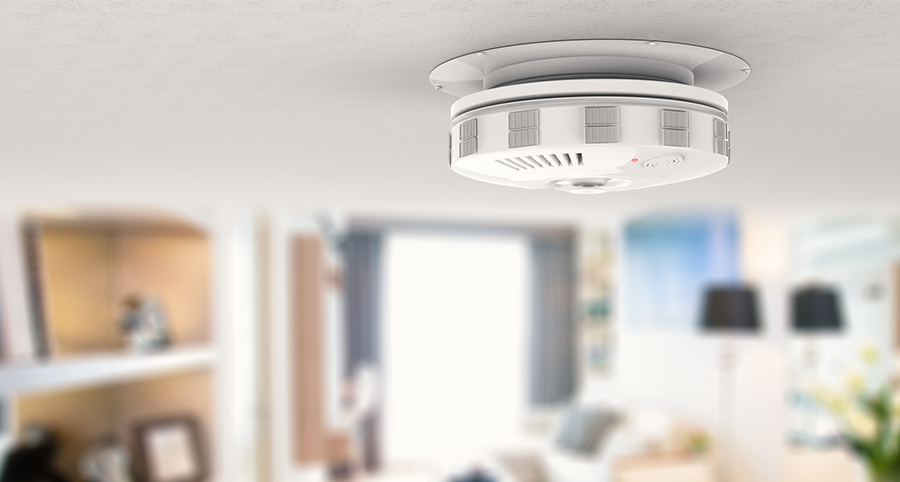What's the difference between regular smoke detectors vs. monitored fire alarms in Ogden?

In the Ogden smoke detector vs. monitored fire alarm discussion, there’s really only one winner. Smoke detectors are an essential consideration in protecting your place from emergency situations, but they have a few concerning limitations. Conversely, monitored fire alarms offer more methods to identify a fire and can reach out to help when the unthinkable happens. Connecting your fire alarms to a security system also brings out additional benefits that your ordinary smoke detectors could only wish for.
Ordinary smoke alarms can only do one thing
Defending against fire is a chief concern for homeowners, and smoke detectors perform a vital role in shielding your family. Even so, smoke detectors have some limitations. For example, they are only able to react to smoke, not extreme temperatures. In the event there is a fire in your residence, you may not be cautioned unless the smoke ascends to the smoke detector. Although there are further telltale indications of fire -- such as a sharp increase in warmth -- if there’s a lack of smoke, there is no sounding of your smoke detector.
Additionally, smoke detectors only beep if they encounter ample smoke. When a fire creeps along slowly at first, you might not be warned until the flames are out of control. Many smoke detectors employ more than one sensor, which means they will be able to perceive smoke from both a blazing inferno and something less intense. If they start beeping, it's up to the homeowner to contact first responders after they safely leave the residence.
Monitored fire alarms offer more benefits than standard smoke detectors
Although they look like standard smoke detectors, monitored fire alarms offer more benefits. When linked to a complete home security installation, they are able to:
- Detect fire with multi-sensor technology: Similar to a standard smoke detector, your monitored alarm has the ability to trigger from an intense fire or one that has just started smoking. It will sound a high-volume beeping if it senses a hazardous situation.
- Discover fire with a abrupt rise in heat: Your monitored fire alarm may also go off if it senses an unusual fluctuation in temperature. Frequently, heat arrives prior to smoke. Having additional methods to identify a fire equates to extra means to keep your family safe.
- Alerts professional monitoring specialists: Fires may take place whether you are home or away. Regardless, your fire alarms will alert your monitoring agents, who are able to swiftly place a call to the fire department. When every tick of the clock is critical, it's nice to know that somebody is consistently keeping a watch of your residence.
- Connects to home automation: While the primary job of a fire alarm is to identify an emergency and call for help, it will also join forces with other automated components. For example, a activated alarm could prompt your system to engage the exhaust fan to hinder the fire or trigger lighting so you may find the best way out of the property.
Your monitored fire alarms are an important aspect of a complete smart home
The simplest way to get the most from your fire alarms is to pair them with a Vivint home security system. Consult with a Vivint security agent today and discover the perfect smart home for your needs. Call (385) 900-2979 or complete the form below to get started.